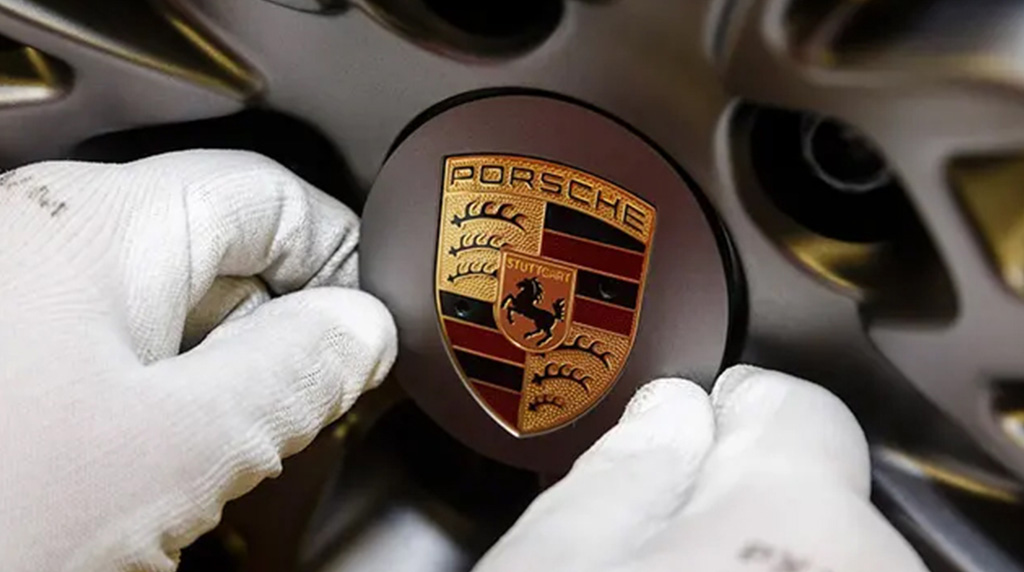Audi float could follow as Volkswagen Group plans to use proceeds to finance its EV future
By Neil Dowling on 25th September 2022 News
The valuation – down from the €85 billion ($A126.7b) estimate proposed two weeks ago because of an erratic global sharemarket – is based on a preferred share price of €76.50 to €82.50 ($A114-$A123).
Data analytics company QuantCo said that the Porsche IPO “will most likely be a success… investors are queuing up.”
“If the Porsche IPO goes well, one could imagine placing other parts (of Volkswagen) such as Audi on the stock exchange,” its analyst Arndt Ellinghorst told Automotive News Europe.
The subscription period for private and institutional investors is expected to run until September 28, with shares offered to private investors in Germany, Austria, Switzerland, France, Italy and Spain. Volkswagen said trading will begin on the Frankfurt Stock Exchange on September 29.
Total proceeds from the sale will be €18.1 billion ($A27b) to €19.5 billion ($A29b) and Volkswagen said these funds from the IPO will help it finance its EV transition and investments in software.
Automotive News Europe said that during meetings with potential investors, Volkswagen pitched the listing as a chance to invest in a company that combines the best of car-making rivals like Ferrari and luxury brands such as Louis Vuitton.
While Ferrari and Porsche both target wealthy buyers, Ferrari remains in a league of its own boasting industry-leading margins despite delivering a fraction of Porsche’s 300,000 annual sales.
Ferrari shares are now €193.60 each ($A288.50) which gives the company a market capitalisation of €38.74 billion ($A57.74b).
At the mid-valuation point for the preference shares, the IPO would value Porsche at 10.2 times earnings before interest, tax, depreciation and amortisation, according to US-based investment bank Jefferies Group. This compares to Ferrari’s EBITDA multiple of 23.1 times.
Still, Porsche’s upper valuation range almost matches Volkswagen Group’s total market value — comprising Audi, Skoda, the Volkswagen brand as well as Seat — of €88 billion ($A131b).
Porsche is targeting revenue of as much as €39 billion ($A58b) this year and return on sales of as much as 18 per cent, up two percentage points from last year, the company said in July. Returns are to climb above 20 per cent in the long term.
ANE said that European markets have been largely shut to IPOs for most of the year, with companies shying away from seeking new listings because of the region’s energy crisis, rising interest rates and record inflation.
Amid the stock market slump, Volkswagen Group’s plan to list Porsche is getting a boost from firm commitments of key cornerstone investors. Qatar Investment Authority, Norway’s sovereign wealth fund, T. Rowe Price and ADQ are set to subscribe to preferred shares of as much as €3.7 billion ($A5.5b).
“We are now in the home stretch with the IPO plans for Porsche and welcome the commitment of our cornerstone investors,” VW CFO Arno Antlitz said.
Aside from offering investors a slice of one of the most recognisable names in car-making, the IPO will hand back significant decision-making power to the Porsche-Piech family, who lost control of the sports-car maker after a protracted takeover battle with Volkswagen.
Porsche tried and failed to take over Volkswagen. The attempt left Porsche debt-ridden and in 2012, Volkswagen Group took control of the sports-car business as part of a financial bailout.
To account for the interests of the billionaire family, which holds 53 per cent of Volkswagen Group’s voting shares via the separately-listed Porsche Automobil Holding SE, the Porsche IPO is complex and has triggered governance concerns that mirror those about Volkswagen’s convoluted structure.
Investors will be able to subscribe to 25 per cent of Porsche preferred shares, which carry no voting rights.
The Porsche-Piech family will buy 25 per cent plus one of Porsche’s common shares with voting rights, meaning they will receive a minority blocking stake and sway on future key decisions.
The family has agreed to pay a 7.5 per cent premium on top of the price range for the preferred shares and plan to fund the acquisition with a mix of debt capital of as much as €7.9 billion ($A11.8b) and a special dividend paid out by Volkswagen.
By Neil Dowling
Road to Recovery Podcast Series
Trends in the Australian retail auto industry and their impacts on dealership values
Volvo presents new-wave transport technology explained and discussed by industry experts
Dacia looks like a solid bet for Australia as Renault looks to bulk up its showroom lineup
© Copyright 1979 – 2022 GoAutoMedia Pty Ltd • Terms and Conditions • Privacy Policy